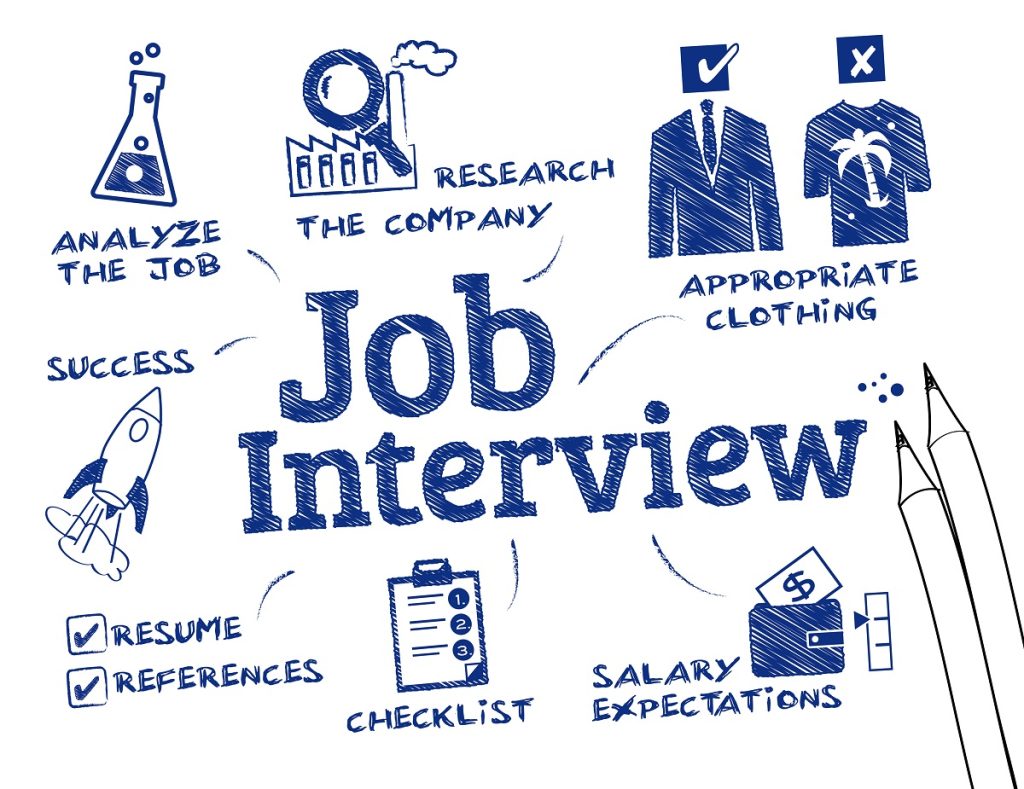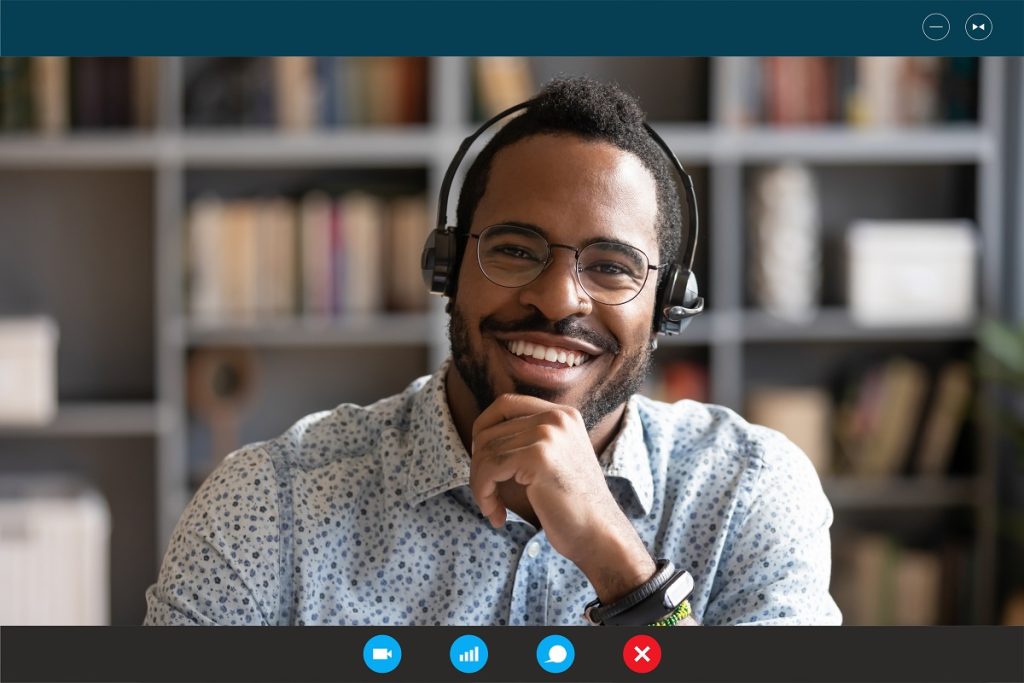Remote interviews are conducted on the phone or, more commonly, online. Just because you are not sitting across the table from the interviewer does not mean you can slack off on dress, timeliness, or preparedness. How you present yourself and the questions you ask can help you get the job.
Remote interviews have become increasingly common in today’s job market, especially with the rise of remote work.
While virtual interviews offer many benefits, they also present unique challenges that catch even the most prepared candidates off guard. Some remote interview tips are in order to prepare you thoroughly and ensure you make a good impression and stand out as a top candidate.
This article discusses several tips to help you ace your next remote interview, from technical considerations to interview etiquette.
Table of Contents
What Are The Main Challenges Of A Remote Interview?
As an interviewee, you may encounter several challenges during a remote interview. One of the biggest challenges is navigating the technical aspects of the interview, such as ensuring your internet connection is stable, your microphone and camera are working properly, and you are familiar with the video conferencing platform being used.
Another challenge is creating a professional and engaging environment in which to conduct the interview. Unlike in-person interviews, where you can rely on the physical setting to set the tone, in a remote interview, you must be intentional about your background, lighting, and attire to create a professional impression.
Additionally, it is challenging to establish a personal connection with the interviewer and convey your personality and enthusiasm through a screen. Without the ability to read body language and social cues like in an in-person interview, you need to be extra mindful of your tone and communication style to come across as personable and engaging.

How Should You Prepare For A Remote Interview?
To prepare for a remote interview, here are some tips you should follow:
- Check your technology before the interview.
- Make sure that area where you will do the interview is well-lit with a neutral background.
- Dress professionally, just as you would for an in-person interview.
- Prepare responses to common interview questions.
- Research the company so you can ask questions.
- Research the company and the position, and prepare responses to common interview questions. Be sure to highlight the skills and experience that make you a good fit for the role.
- Practice your tone, pace, and clarity. Speak clearly and confidently, and try to convey your personality and enthusiasm through your voice.
Mastering Your Technology
Before the interview, test your internet connection, camera, and microphone to ensure they work correctly. Familiarize yourself with the video conferencing platform, and download any necessary software beforehand.
Skype Or Zoom
Whether it’s a video call, a Skype or Zoom interview, or a Google Hangouts session, preparing for an online interview requires a different approach than a face-to-face interview. Any of these software products allow you to test your equipment before the call so that your microphone and camera are working correctly. Check your internet speed with a speed test and ensure you have a stable Wi-Fi connection.
Avoid using your cell phone for the video interview. A laptop with a webcam creates a better experience for both you and the interviewer.
With technical difficulties always possible, having a backup plan and notifying family members of your interview process mitigates any issues.
By testing your equipment ahead of time, selecting a quiet and well-lit environment, dressing appropriately, and being mindful of background noise and distractions, you can make a positive first impression on the hiring manager and the remote team.
Controlling The Background
Select a quiet, well-lit location with a neutral background to conduct the interview. As the interviewer can see what’s behind you, ensure your work area is neat and uncluttered.
If you live in a tiny studio apartment or a crowded space, consider investing in a vinyl background to give you a backdrop of books or greenery. Platforms such as Zoom, as well as third-party providers, offer a wide selection of virtual backgrounds you can apply to give your surroundings an upgrade.
Ensure you have a comfortable chair and a stable surface to place your laptop or device.
How Should You Dress For A Remote Interview?
For a remote interview, you should dress professionally and appropriately. Avoid wearing clothing that is too casual or distracting on camera, and opt for neutral, solid colors rather than bold patterns.
Dress as if you were attending an in-person interview, from head to toe, as you may need to stand up or move during the interview. The internet is full of memes of remote call participants dressed professionally from the waist up only. Don’t let this be you!
By dressing professionally, you’ll convey a sense of competence and preparedness and show the interviewer that you take the opportunity seriously.

Presenting Yourself On Camera
Remember, the job interview is your chance to show up and impress the team members, so use your LinkedIn and job description research to tailor your responses to the role and company culture. Engage with the interviewer, maintain eye contact, and use your body language to show interest and enthusiasm.
A common starting question in interviews is, “Tell me about yourself.” To answer, you should have a well-thought-out “elevator speech” ready to highlight your credentials. This quick presentation of a minute or less should include your name, industry and specialty, your experience, and your goal.
You can tweak the introduction to fit the interview, but presenting the overview will get the interview off to a good start.
A sample presentation might be:
I’m Sam Jones, a software engineer who is fascinated with improving user experience on the web. As I pursued a computer science degree, I earned additional Google and Microsoft certifications that launched my 8-year career at my previous marketing company. After working for a smaller company, I am anxious to bring what I learned about front-end and back-end website development to a remote position in a company considered an industry leader.
After your initial introduction, the interview will follow up with more questions. Be prepared to answer questions thoroughly and provide specific examples of your experience and skills.
What Questions Should I Ask In A Remote Interview?
In a remote interview, asking thoughtful questions to show interest and engagement is essential. Ask about the company culture, the team structure, and the expectations for the role. Inquire about any specific challenges or opportunities related to the position, and ask about the interviewer’s own experience with the company.
Your company research is crucial. You should not ask basic questions that a Google search should answer, such as “What year were you founded.” Ideally, you should be able to find out enough about the company so you can ask more in-depth questions.
While you should ask about pay or benefits unless the interviewer brings it up, you should find out what the next steps and the timeline for the hiring process are to show your enthusiasm and readiness to move forward.

Remote Interview Tips To Nail Your Interview For A Remote Position
In the age of the pandemic, remote job interviews have become increasingly common, and for many job seekers, it’s a new experience. Preparation is key if you wish to nail the interview for a remote position. Research the company and the position, practice your communication skills, and test your equipment and internet connection.
Dress professionally, practice your on-screen body language, and choose a quiet, well-lit environment for the interview. Even if you aim to be hired as a remote worker, your demeanor will sell the interviewer on your ability to do the job, interact with colleagues, and look and act professionally with management, teammates, and customers.
Finally, remember to send a follow-up thank-you email and be patient with notifications about the hiring process. With these remote interview tips, you’ll be one step closer to landing your dream remote role.


